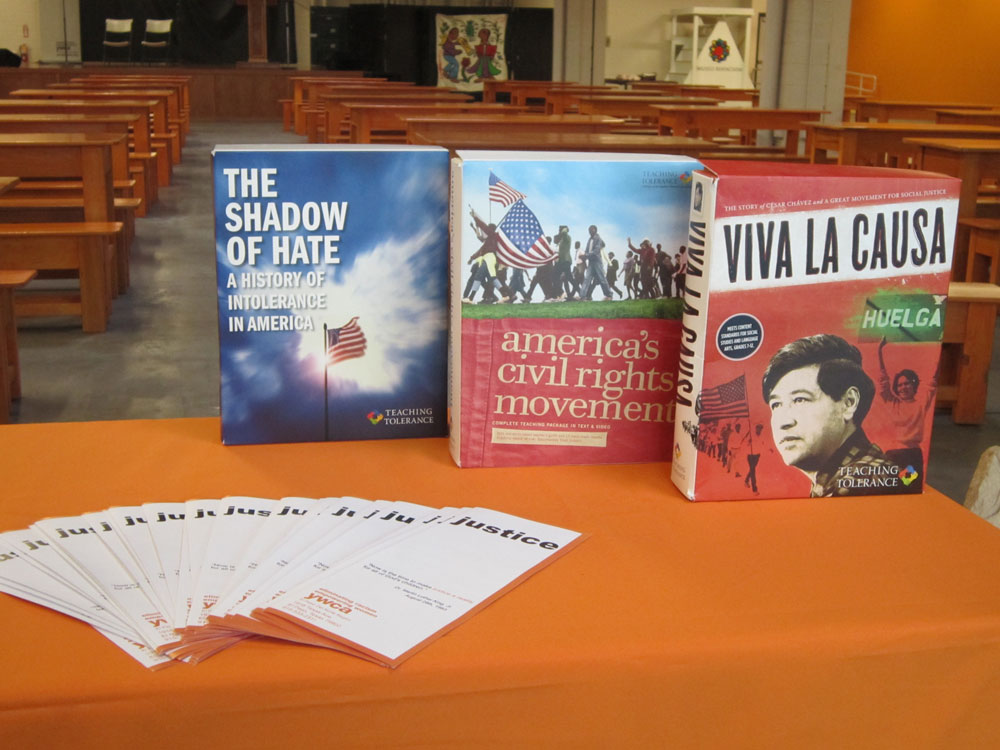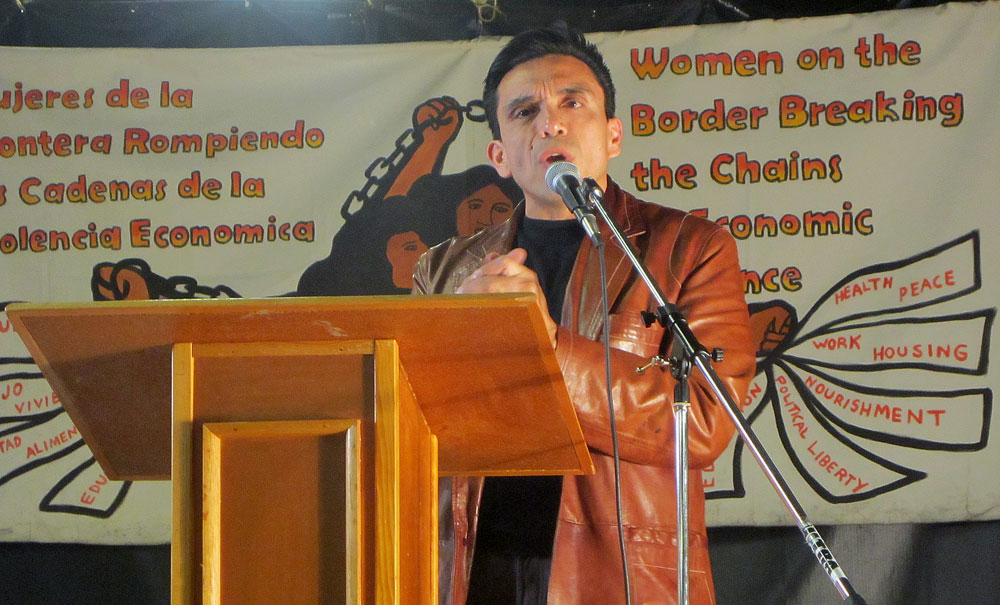
The Librotraficante Caravan exhibited some of the banned books at Mercado Mayapan. (Idali Cruz/Borderzine.com)
EL PASO — Moving to the somber beat of an Aztec drum, dancers performed rituals passed to them by ancient generations to mark what has been called a cultural crime committed by a recent Arizona law that eliminated Mexican American studies from classrooms and prohibited the use in schools of some books by Mexican-American, Chicano, and Latino authors.
The Librotraficante Caravan, a group of authors and activists, arrived at Mercado Mayapan here in March on their way to smuggle banned books back into Arizona. “When Arizona tried to erase our history, we decided to make more history,” said Tony Diaz, a literature professor at Houston Community College who is also a novelist and one of the leaders of the Librotraficante Caravan.
“It’s important to stop these kind of actions that affect our community, not only culturally but in all ways, and banning a book is just something that cannot be accepted,” said Minerva Laveaga, director of BorderSenses, a nonprofit literary organization based in El Paso and one of the sponsors of the event.
Throughout the event some of the banned authors, members of the caravan and others took the stage and read parts of their works. The market was fully packed, and several media outlets covered the story.

Tony Diaz, literature professor at Houston Community College and one of the leaders of the Caravan. (Idali Cruz/Borderzine.com)
“Books shouldn’t be banned because it’s the writer’s form of expression and they are printed out for everyone to read. Some of the books that we like were on the list so we came,” UTEP student Juliana Sanchez, 22, said at the event.
Some see this law as racist because it only targets Chicano ethnic studies and books of Latino, Mexican-American and Chicano authors. The law says that books considered as possible tools to conspire against the U.S. government may be banned from the classrooms. “I think it’s just one more step that Arizona has decided to take towards racist law implementation,” Laveaga said.
Doroteo Naranjo also known as “Indio,” is a veteran and an activist who said he and his fellow coworkers have been attending protests against racism since the 70’s. He attended the event to show his support of the Librotraficante Caravan said he thinks their mission is important because, “Ignorance is what brings us down. The person who is ignorant will struggle more to move forward.”
This type of discriminatory law affects everybody, Laveaga said. “This is not just a matter of ethnicity. It’s a matter of freedom of speech, and respect for literature and art in general,” she said.



The struggle for respect, civil rights and dignity has come back to us for another generation of struggle. Only the oppressed can set us free, was the insightful statement by Paulo Freire the reknown Brazilian educator. Freedom, dignity, civil rights will be ours, not only as “Chicanos,” “Mexican Americans,” or simply “Mexican Mexicans,” but for all minority groups willing to struggle to attain it. A careful reading of the Arizona law that has forbidden ALL minority studies includes and asserts that these programs promote “hate” by one group towards another. Now, which group is promoting “hate?”
If being “Chicano” is being declared a subversive by the ruling class, I think we are winning and we must continue to struggle for equality in all aspects of our American society. The White minority does not have the right to dictate what America should be like. I’m just as American as any other citizen; I’d like America to look, feel, talk and celebrate like I like to celebrate. Let’s organize more voters and promote more: Piñata Power!
Thank you for the support, Idali and Borderzine!
Idali, I read your article about the Literary Caravan. You interviewed Doroteo “Indio”
Naranjo….I was in the Navy with him. I’ve been looking for him for a few years. Do you have an email or telephone number or address or any information about him?
Sincerely,
Andres Valdez